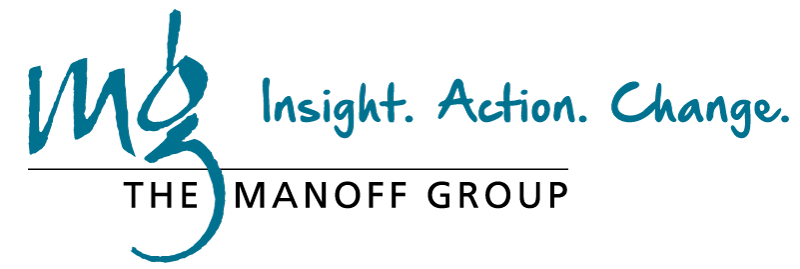 Behavior Profile: Learners Promote a Culture of Respect
Behavior Profile: Learners Promote a Culture of Respect| Democracy and Governance Goal: Reduce school-related gender-based violence | ||
|
Learners promote a culture of respect for human rights, diversity (including gender, sexual orientation, disabilities/differently-abled, etc.) and inclusion % of school community members who believe learners respect the human rights of all people regardless of gender, sexual orientation, disability, or other characteristics
|
Behavior Analysis |
Strategy | ||
|---|---|---|---|
BEHAVIOR AND STEPSWhat steps are needed to practice this behavior?Learners promote a culture of respect for human rights, diversity (including gender, sexual orientation, disabilities/differently-abled, etc.) and inclusion
|
FACTORSWhat factors may prevent or support practice of this behavior?StructuralAccessibility: Learners cannot promote a culture of respect because a gap exists between policies, laws, and implementation, especially with regard to diversity, inclusion, general bullying, and intimidation Accessibility: Learners cannot promote a culture of respect because a lack of measures for peer and educator accountability on human rights make compliance difficult to identify Accessibility: Learners cannot promote a culture of respect because inclusivity and diversity are not always an integral part of the standard school curriculum Service Provider Competencies: Learners cannot promote a culture of respect because teachers lack competency to discuss, practice, and teach diversity acceptance, inclusion, and self-reflection SocialGender: Learners do not promote a culture of respect because discussion of gender in schools often is narrowly focused on learner participation rather than a deeper discussion of learners' experiences of respect or discrimination Norms: Learners cannot promote a culture of respect for human rights because a culture of silence in many schools makes it difficult for learners to call out instances of marginalization or discrimination InternalAttitudes and Beliefs: Learners do not promote a culture of respect because they do not always consider school as a place where they have responsibility to promote human rights Knowledge: Learners cannot promote a culture of respect because learners, especially those NOT being marginalized, do not always recognize the marginalization of others nor know what to do about it Skills: Learners cannot promote a culture of respect because they frequently lack skills to proactively change the status quo, including appropriate language and capacity to navigate peer networks and widely held beliefs |
SUPPORTING ACTORS AND ACTIONSWho must support the practice of this behavior, and what actions must they take?InstitutionalDistrict Education Department: Orients educators on Codes of Conduct for Educators and relevant laws and policies related to SRGBV NGOs: Educate learners to respect other's human rights and practice inclusion and diversity (to complement school curriculum). Circuit Manager: Monitor and provide feedback on implementation of in-school activities to promote a culture of respect in schools. Circuit Manager: Provide in-service training, mentorship and coaching of School Management Team, School-based Support Teams (SBST), and teachers. School-based Support Teams (SBSTs): Implement peer-support and mentorship plans for teachers to assist learners to respect other's human rights and practice inclusion and diversity. School Governing Bodies (SGBs): Revise, implement and monitor the School Code of Conduct, policies and disciplinary procedures. CommunityTeachers: Actively participate in school training, mentorship, and coaching. Teachers: Model exemplary behavior to encourage learners to respect human rights and practice inclusion and diversity. HouseholdParents/Guardians: Model exemplary behavior to encourage learners to respect human rights and practice inclusion and diversity. |
POSSIBLE PROGRAM STRATEGIESWhat strategies will best focus our efforts based on this analysis?Strategy requires Communication Support Enabling EnvironmentInstitutional Capacity Building: Orient teachers on new/revised School Codes of Conduct and protocols for the response and management of SRGBV. Partnerships and Networks: Monitor and provide feedback to the DED key departments on implementation of School Codes of Conduct, disciplinary procedures, and guidelines. Policies and Governance: Participate in SGB meetings Policies and Governance: Host orientation workshops for teachers, parents, school support staff and learners on endorsed policies, Codes of Conduct and Disciplinary Procedures on SRGBV. Systems, Products and ServicesQuality Improvement: Monitor and provide feedback to the DBE and relevant department on capacity gaps and areas for improvement to enhance teacher’s abilities to promote a culture of respect. Quality Improvement: Workshop educators on techniques to promote a culture of respect in schools using best practice case studies, tools, and relevant materials Demand and UseAdvocacy: Mobilise parent advocacy Communication: Develop/adapt and use targeted human rights, diversity, and inclusion messaging to complement to the school curriculum Communication: Provide technical support and monitor learner-driven advocacy, awareness, education, monitoring, and skill-building campaigns in schools using best practice case studies, tools, and relevant materials Communication: Engage schools to conduct SRGBV information sharing open days (jamborees), facilitating the active participation of all relevant stakeholders Collective Engagement: Empower learners to conduct dialogues on gender attitudes and norms. Collective Engagement: Monitor, document and share learnings from peer dialogues among learners on gender attitudes and norms. Skills Building: Complement School Based Support Team activities with activities to educate and build skills of learners on human rights, diversity, and inclusion. |

 The Manoff Group was acquired by JSI in 2022.
The Manoff Group was acquired by JSI in 2022.